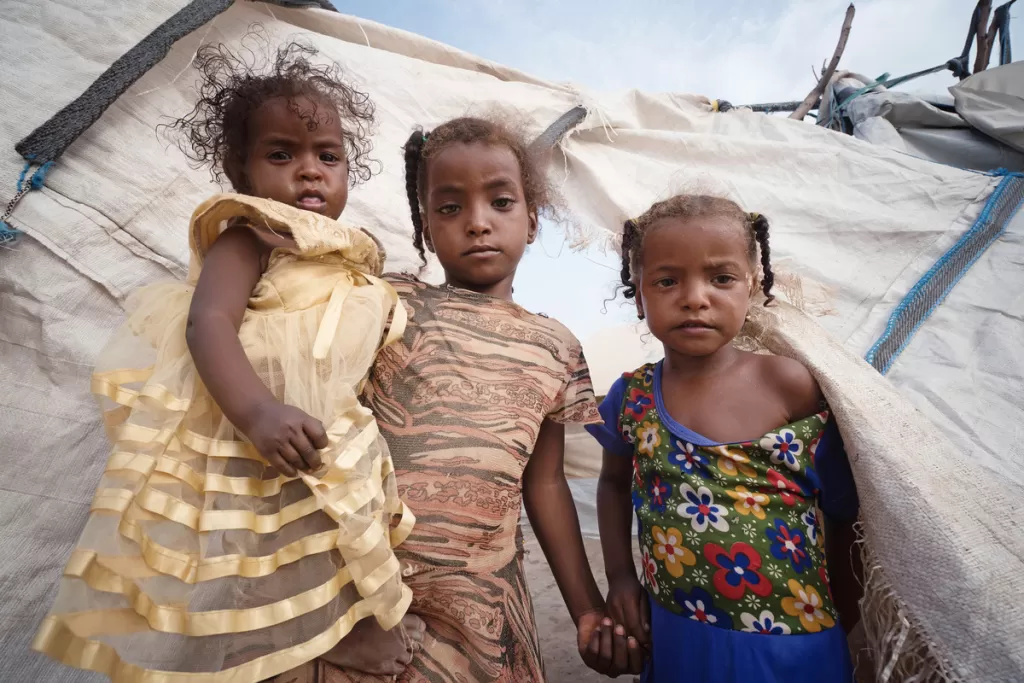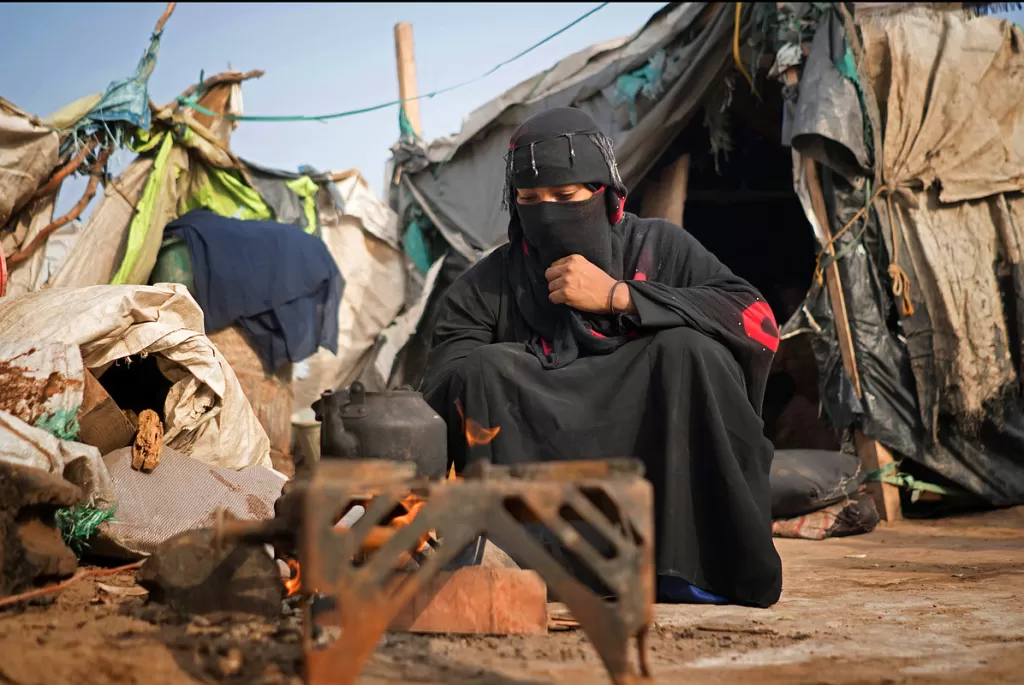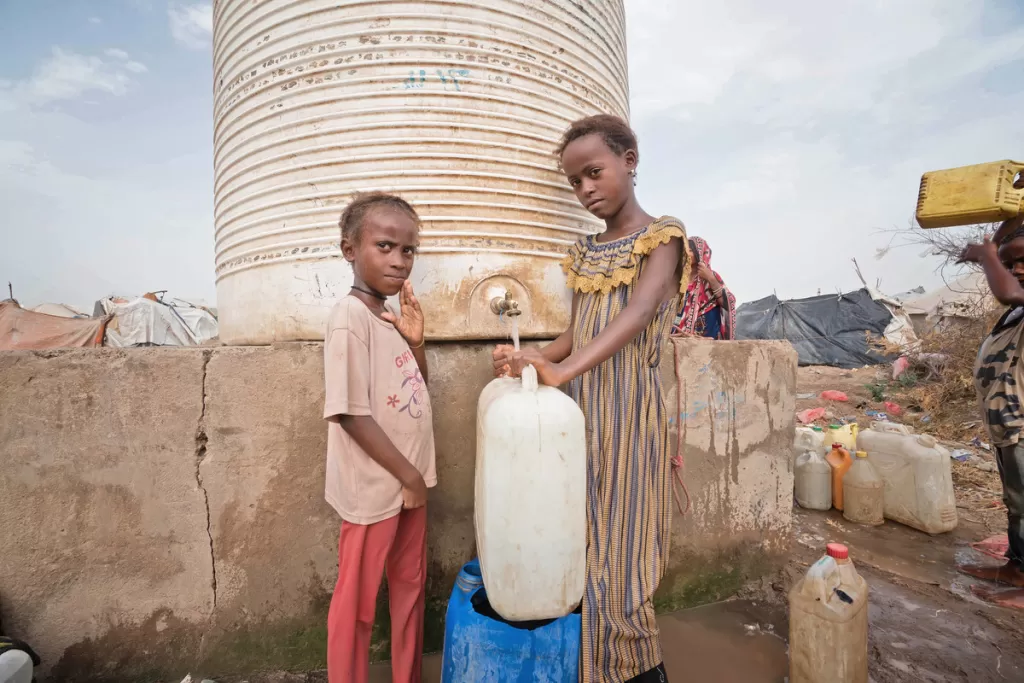
Yemen hit by third wave of Covid as millions on the brink of starvation
Coronavirus cases have spiked in Yemen in the last month as displaced communities struggle to cope with the impact of the pandemic, ongoing conflict and a hunger crisis that is putting millions at risk. Only 1% of the population is vaccinated against Covid-19, access to healthcare is poor and families cannot afford to buy food. Donations to the DEC Coronavirus Appeal are providing the most vulnerable people with lifesaving aid.
8 October 2021
Coronavirus cases have spiked in Yemen in the last month as displaced communities struggle to cope with the impact of the pandemic, ongoing conflict and a hunger crisis that is putting millions at risk. Only 1% of the population is vaccinated against Covid-19, access to healthcare is poor and families cannot afford to buy food. Donations to the DEC Coronavirus Appeal are providing the most vulnerable people with lifesaving aid.

Three sisters in the camp where they have been living since fleeing their home with their parents. They have little food and lack water, toilets and access to healthcare. Photo: Alaa Aldwaley/DEC

Taghreed, a mother of four, fled the war from her village in Taiz and has been living in a camp that lacks basic essentials like food, water, toilets and healthcare. Taghreed’s husband was unable to work due to coronavirus and she has been struggling to access food. Photo: Alaa Aldwaley/DEC

Two cousins, aged 7 and 11, collect water from a storage tank in the camp where they have lived since they fled the war from their village in Taiz. Photo: Alaa Aldwaley/DEC